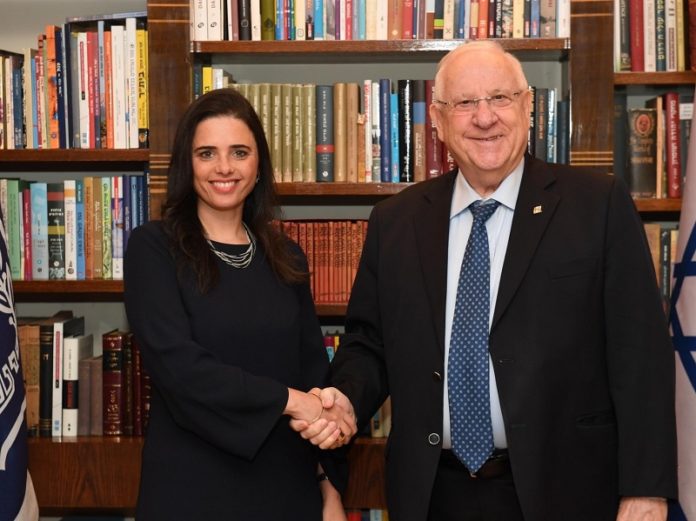
President Reuven Rivlin and Minister of Justice Ayelet Shaked announced results of a special ‘period of pardons’ to mark Israel’s 70th anniversary this week.
There was a total of 551 requests for commutation of sentences meeting criteria set. These included reducing fines and deleting criminal records submitted by soldiers in national service.
Thousands of pardon requests were received by Rivlin that did not meet criteria. Beit HaNasi and other bodies dealt with these pardon requests in line with normal procedures for.
Rivlin commuted sentences of 102 prisoners, 13 times the average over the last five years.
Among sentences commuted were prisoners suffering from serious illness and disabilities, prisoners over 70 years of age and soldiers serving in combat roles and pre-military academies.
A small number of requests are under consideration and will be decided in the next coming weeks.
Udit Corinaldi-Sirkis led the legal team behind the complex process.
Advisors dealt with submissions professionally after the pardon period was announced.
Rivlin praised Minister Shaked, the Ministry of Justice team headed by Director-General Emi Palmor and pardons department head Nochi Politis for their efforts.
Pardons granted will not endanger the public nor require law enforcement expense.
“The character of a society is gauged by its view of prisoners and convicts,” explained Rivlin.
“The 70th anniversary, along with the pardons, was an opportunity to stop, look and make sure we see those we perhaps do not see well enough normally. Not only to trumpet our successes and achievements over 70 years of independence, but also to show compassion and extend a hand to those who need it. To bring back to our collective those who left it and were found worthy of returning. That is an important message to Israeli society and the power of the institution of pardon.”
Rivlin added Israel’s 70th anniversary launched the period of pardons to proclaim freedom and make greater use of the authority of mercy and compassion.
Applauding the results of this initiative, Rivlin noted it strengthened confidence of people in State institutions which put compassion alongside law enforcement.
Minister Shaked also welcomed the results.
“IDF soldiers give the best years of their lives to the country and over the last year we have given them ours,” she noted.
“The 70th anniversary was an excellent opportunity for us to make an exception to the law with soldiers and citizens who proved they have undergone rehabilitation. That was the case when we approved the vast majority of requests from soldiers to delete criminal records and I am delighted that many more soldiers submitted requests during the period of pardons than in previous years.”
Shaked added, “There were also more requests for commutation of custodial sentences from citizens who had served a large part of their sentence and undergone rehabilitation. They were released after building a program for rehabilitation in the community and supervision until the end of their sentence.
“The aim was to deal with problems that led to the crime being committed and to reduce the phenomenon of the ‘revolving door’ in light of the conclusions of the Dorner Committee on the limitations of the effectiveness of custodial sentences in reducing crime.”
Shaked thanked Rivlin, Politis and Corinaldi-Sirkis in helping implement the initiative.
Rivlin and Shaked thanked the State Prosecutor’s Office, Public Defense Office, Prisoners’ Rehabilitation Authority, Israel Prison Service, Judicial Authority, pardons committee and IDF.
By Adam Moses









